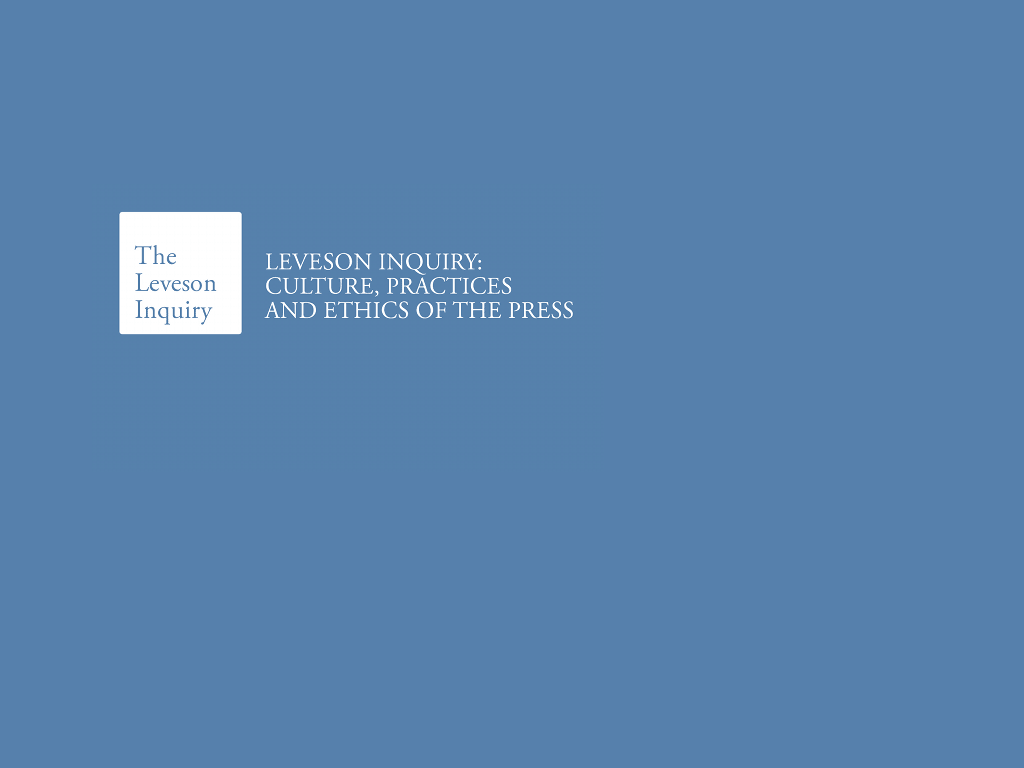Twitter, blogs, and other digital media are valuable sources for free speech but are undermining the role of the British press and are placing extraordinary pressures on print titles, according to the report into press standards released by Lord Leveson today.
But Lord Leveson warned that these pressures should not be used as an excuse “to race to the bottom and accept lower standards which do not respect the rights and liberties of individuals.”
Lord Leveson has been investigating the standards of the British press following reports of misconduct by some journalists. The inquiry was sparked by allegations of phone-hacking and corruption in a number of tabloids.
Leveson says that ready access to free content, including blogs, 24/7 news channels and, specifically, Twitter, have changed the types of stories which newspapers pursue. He argues that since the public now gets breaking news and regular news updates from blogs and free news sites newspapers now place more of an effort on sourcing exclusive and celebrity-focused stories in order to maintain readership figures.
“The accelerating speed of technological change, leading to the explosion of television channels, 24/7 news coverage (not least on the BBC, a rival also online), the internet with its many sources of news and information (usually free), blogs, and social media such as Twitter have all contributed to a dramatic change to the cost base and economic model on which newspapers are based. In turn, this has increased the pressure for exclusive stories. Most titles produce editions online, accessible on a PC, tablet or smartphone, many of which are free to the user. Although the larger selling newspapers remain profitable (even in some cases extremely profitable), there is a very real challenge because of the competitive pressure, the blurring of old distinctions (such as between video content and print) and the need to find ways of making money from publishing on the internet.”
In the 20th century, with the exception of radio and TV, which were limited in their reach by scheduling and bandwidth, Leveson says the newspaper industry operated with no significant competition from external sources. The only major competition the press saw was that which existed between print titles.
Naming Twitter several times in his landmark report Lord Leveson says that the social networking site, along with other online sources, has utterly changed this and as a result the role of the modern press has shifted. He added that because of these sites are not based in the UK, they have made the control of information “which might have been possible in an earlier age” impossible.
“But it is indisputably the case that newspapers in this country cannot be viewed as once they were, as being uniquely responsible for the delivery of news. They are not. Control over information which might have been possible in an earlier age can be defeated instantly on Twitter or any one of many other social media sites, based out of the UK and not answerable to its laws.”
The report says that the rise of social networking sites “has been little short of phenomenal” but speaking specifically about Twitter, Leveson says that the news value of the site is limited as users’ tweets are read by relatively few people (with the exception of Fry-bombing) adding that the site’s real time structure can work to correct any erroneous content users publish.
“The instant nature of social networking also differentiates it from more traditional media. Rebuttals and denials of allegations can take place instantly, helping if not to kill a story at least to provide the subject of the story with a voice and make users aware that the veracity of the allegation or story may be in doubt.”
The report says that while digital media threatens the economic model of the press the public’s access to news from online publishers based outside of the UK’s borders means that any “burdensome or insensitive regulation” could threaten the survival of British print titles.
“The problem, however, is not simply what is happening in this country: news and information comes from everywhere around the world. Although Mail Online boasts one of the largest online newspaper readerships, the UK has few world class players to rival great global American information businesses and nothing like the economic muscle. All of this provides competition and, in particular, raises profound questions about the ability of any single jurisdiction to set standards which, in a free and open society, can be breached online with the click of a mouse. The upshot, therefore, is the need to recognise that burdensome or insensitive regulation would make it even harder for British newspaper groups to survive.”
While the Leveson report sees Twitter and other digital technologies as the source of rapid change in the press it also praises digital media, which it describes as a “powerful example of the proper manifestation of free speech.”
“The Inquiry has not been alone in commenting on the way in which the press have reported the Inquiry. Private Eye has regularly published commentary on the way in which it has been reported; the campaign (on the website http://hackinginquiry.org/) has done the same. Bloggers have added their own comment and the Inquiry has engaged with Twitter (http://twitter.com/@levesoninquiry) [sic] on which there has been a regular and substantial dialogue about the Inquiry both in this country and abroad. This also is a very powerful example of the proper manifestation of free speech.”












